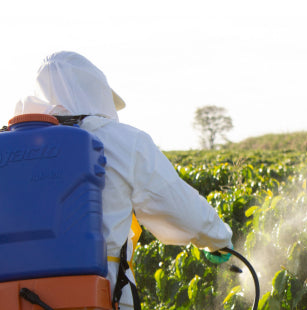Choosing the Right Herbicides for Riparian & Native Planting Areas

Choosing the Right Herbicides for Riparian Planting Areas
When managing weeds in riparian planting areas, it's critical to choose herbicides that are effective on the target plants while being safe for desirable natives such as flax, sedges, and rushes. At Sprayshop, we often get asked about which herbicides to use in these sensitive environments. Here's a quick guide to help you select the right products.
Targeting Grass Weeds: Haloxyfop
For controlling grasses without harming native species, haloxyfop is a standout option. This selective herbicide targets grass species only and will not affect:
-
Rushes
-
Sedges (e.g., Carex)
-
Flax
-
Other broadleaf plants
It’s available in different concentrations (100g/L and 520g/L) and sold under brand names such as Scorp (100g/L Strength) Haloxyken (520g/L Strength)
Tackling Broadleaf Weeds: Triclopyr
When dealing with broadleaf weeds like gorse but still wanting to preserve sedges, rushes, and grasses, triclopyr (600g/L) is a great choice. It won’t harm:
-
Rushes
-
Sedges
-
Flax
-
Grass species
It’s commonly found under brand names such as, Triclopyr 600. While these herbicides are generally more expensive than glyphosate, they are still far more cost-effective than replanting an entire area.
Glyphosate: Use with Caution
Glyphosate can be highly effective, but extreme caution is needed around riparian species like flax and sedges. Even trace amounts can cause significant damage. For this reason, it's often best reserved for spot spraying away from native plantings.
Need help choosing the right product?
Visit us in-store or contact our team — we’re happy to help you protect your plantings while keeping weeds in check.
SHARE:

